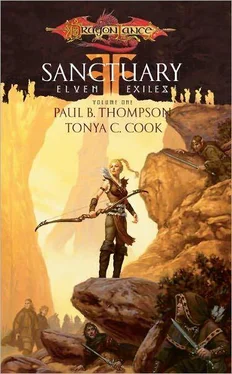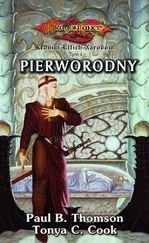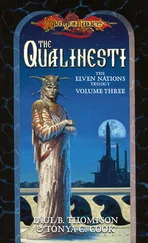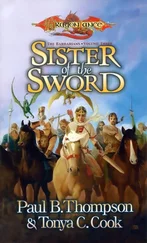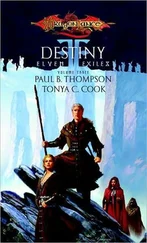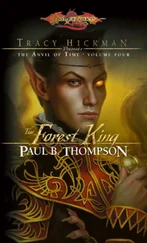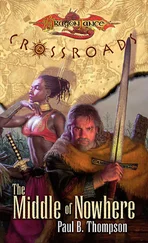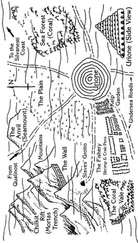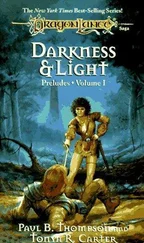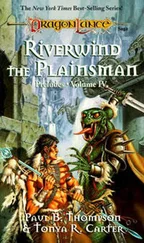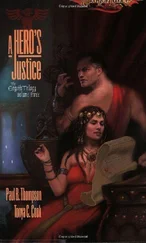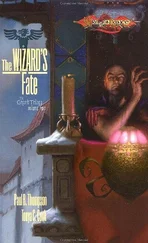The Khan was staring pensively at the eleven men arrayed before him. The men were his geel-khana. Khuri-Khan was divided into eleven precincts, known as geel . Each had a commander of the guard, a geel-khana. Despite the moderate temperature of the room, they were sweating heavily.
After allowing the silence to lengthen sufficiently, Sahim-Khan finally spoke. His tone was calmly conversational; the expression in his dark eyes was anything but.
“Each day you report the streets of my city are calm. Yet the laddad queen was attacked by assassins at the doorway of one of our holiest temples. Who were the attackers?”
The eldest guard captain, like the Khan a member of the Khur tribe, replied, “Mighty One, they were followers of Torghan’
“From here in the city?” Sahim’s voice rose. “No, Great Khan. The two who were slain were nomads.”
The Khan grunted. At least the assassins who’d dared test his sovereignty were not locals. Nomads were another matter. None could say what desert wanderers might do.
“The laddad have my permission to be here, and they have the privilege of my protection. Why were they attacked?”
“Mighty One, we have been told”—the captain laid heavy emphasis on the last word, so his lord would know this opinion was not his own—“that the Sons of the Crimson Vulture were driven to madness by the sight of so many foreigners in our city.”
“It is I who decides who is welcome in Khuri-Khan. Only I!” Sahim declared coldly.
He stood and began pacing slowly across the dais. Even through the thick carpet and with his heavy scarlet slippers, he could feel the ruts in the stone, claw marks left by the great dragon. Rather than upsetting, Sahim found the sensation comforting. The formidable beast Malys was gone, and he, Sahim Zacca-Khur, stood in the monster’s place.
Torchlight sent his distorted shadow rippling across the tapestries decorating the thick walls of the keep. The light also glittered on the design embroidered on his robe: two rampant golden dragons, the emblem of his line, faced each other across Sahim-Khan’s broad chest. The design rose and fell as he halted, breathing deeply, pondering in silence. This worried his underlings. A shouting Khan was expending his bile. A silent Khan was hoarding it for a future explosion.
At last he spoke, his voice so low they could barely hear it, even though they were straining to catch every nuance.
“I shall have to apologize to the Speaker of the Sun and Stars. Can any of you imagine how likely I am to enjoy that?” Faces blanched, but no one spoke, and he bellowed, “Can you—”
“I see no need for you to apologize to anyone.”
All eyes, including the Khan’s, turned to the man who had spoken. Below the dais, on Sahim’s left, was a tall, powerfully built man in foreign dress. He sat in a high-backed, western-style chair, the only person in the room, other than Sahim himself, allowed to sit. His face was clean shaven, his skin dark. His voice resembled the bellow of a bull, even in calm discourse.
“Lord Hengriff speaks truly,” the eldest guardsman said quickly. “The Mighty Khan need not stoop to apologize to the laddad.”
“That’s not what I meant.” Hengriff stood, letting his imposing bulk impress itself on the more numerous but shorter Khurs. His obsidian gaze briefly swept the assembly before fixing on Sahim. “Tell the elves their protection is an increasingly heavy drain on the royal coffers. Instead of apologizing, raise the fee you charge them for the right to remain here. Turn this misfortune into a fortune, Mighty One.”
For the first time that day, Sahim-Khan smiled, a slow grin of delight. “You’re a crafty rogue, my lord. Are you sure you aren’t some part Khurish?”
No answering smile came to Hengriff’s face. He merely sat down again, the heavy chair creaking under his weight.
Sahim ordered the high priest of the Temple of Torghan brought before him. Soldiers had already collected him, and soon he stood before his khan. A sharp-faced former nomad named Minok, the priest, like most Khurish clergy, was beardless and kept his hair cropped close to his scalp. Ritual tattoos were visible at the wrists and neck of his plain cotton geb. Alone among all the Khurs in the room, Minok showed no fear of Sahim-Khan. He made proper obeisance to his liege, but looked Sahim in the eye when he spoke and did not waver when the Khan denounced the devotees of the god for their attack on the elf queen.
“Men of the desert have noble souls, Great Khan,” Minok said proudly. “It is too much to expect them to look the other way while foreigners multiply and flourish in our land. Give the word, Great Khan, and the Sons of the Crimson Vulture will sweep the laddad contagion from all of Khur!”
Sahim-Khan appeared to weigh this proposal with due care. Intimates of the palace knew better. The priesthoods commanded the loyalty of thousands, but Minok’s followers had embarrassed the Khan. Whether or not he extorted a greater fee from the Speaker, Sahim did not take kindly to any challenge to his authority. Servants and guards in the throne room began quietly to wager on how long the priest of Torghan would live.
“Your patriotism and piety do you credit, holy one,” Sahim said at last. “I will consider what you have said. In the meantime, it is the will of your khan that the laddad not be molested. Restrain your devotees, priest, or I will. Is that clear?”
All Minok could do was agree to the order. He was surrounded by the Khan’s partisans. Sahim dismissed him, and the proud priest backed out of the room, bowing as he went. Once he disappeared through the double doors, Sahim nodded to soldiers waiting by the exit. They slipped out. Coins surreptitiously changed hands throughout the room. The priest of Torghan had even less time than most had thought.
Sahim sent the geel-khana on their way, too. As they departed, he realized the usual crowd at court was short by one—his eldest son, Shobbat, was not present. Curiously, this pleased Sahim. The heir to the throne of Khur was not known for offering sage counsel to his father (not that his father would have accepted any), so Sahim had placed him in charge of the repair work on the palace. He must be busy elsewhere in the sprawling, half-ruined complex. This new diligence was refreshing. Sahim would make a khan out of his wastrel son yet.
When most of the audience had gone, Sahim addressed Hengriff. “What do your people make of this new agitation, my lord?”
“You said it yourself, Mighty Khan. Patriotism and piety. The people of Khur tire of the elven pestilence.”
Sahim shrugged. “A few fanatics. They will obey my decrees, or suffer the consequences.
“Hatred of the elves will spread, Great One. Mark my words.”
Sahim had no doubt of that. He knew the Nerakan greased palms all over Khuri-Khan, buying goodwill for his Order and ill will for the elves. Slyly, he asked, “Should I loose Holy Minok and his followers then?”
Hengriff cleared his throat, the sound like a panther’s snarl. “The zealous, once unleashed, are difficult to rein in.”
His meaning was abundantly clear. If the Torghanists were allowed to rid Khur of the elves, they might not stop there. The Khan himself might not meet their standards of purity.
“Better you should expel them yourself, Great One,” the Knight added. “The land would resound with your name for having rid it of their haughty presence.”
Sahim thanked the Nerakan emissary for his insight.
Hengriff bowed low and departed, taking with him the trio of drably dressed men at his back. No amount of broadcloth or linen could disguise the breadth of their shoulders or the watchfulness in their eyes: playing the game as he did, Hengriff never went anywhere without bodyguards.
Читать дальше
